Amy Scott is a PhD candidate at Boston University where she is currently conducting her fieldwork in Gunung Palung National Park, studying reproductive strategies of male and female orangutans. She was awarded a Leakey Foundation Research Grant in our fall 2018 cycle for her project entitled “Sexual conflict and sexual selection in Bornean orangutan reproductive strategies.”
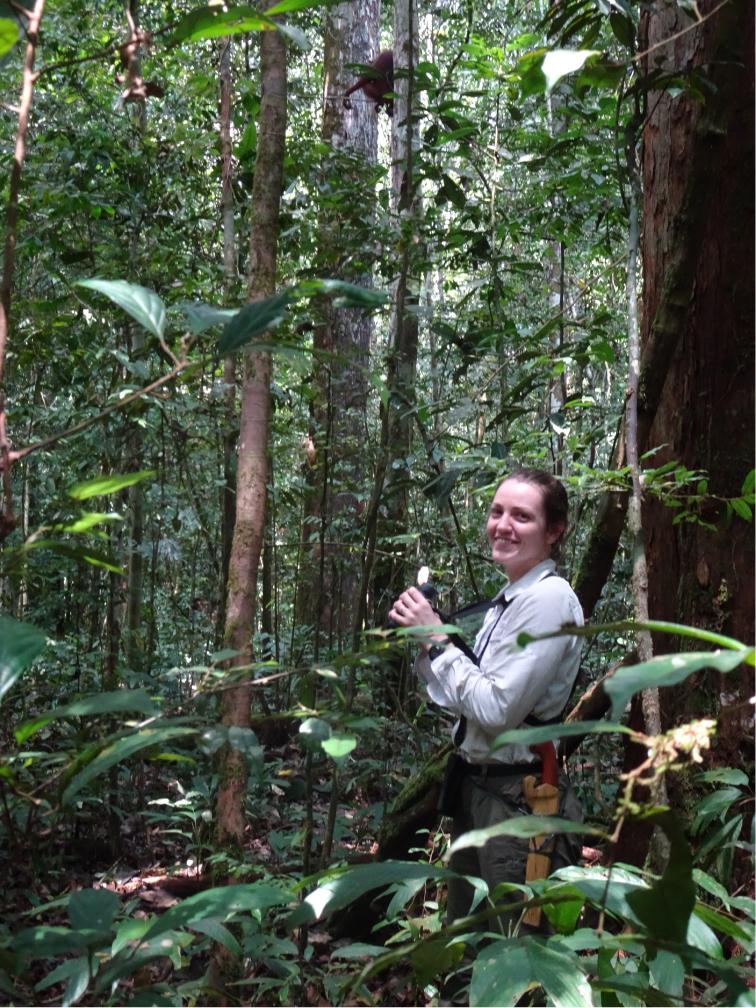
Leakey Foundation grantee Amy Scott enjoying an orangutan follow in Gunung Palung National Park, West Kalimantan, Indonesia.
For many species, male and female reproductive strategies are often in conflict with each other, sometimes referred to as the ‘evolutionary arm’s race’. These reproductive strategies are in conflict because reproduction requires different costs (time and energy investments) for males than for females. Female orangutans invest an average of 7.6 years (the longest of any primate) into each offspring before they have another offspring; however, orangutans are semi-solitary, so male orangutans do not provide any paternal care. Such inequality in parental investment in offspring amplifies the potential for conflict and makes orangutans an ideal species to study sexual conflict.
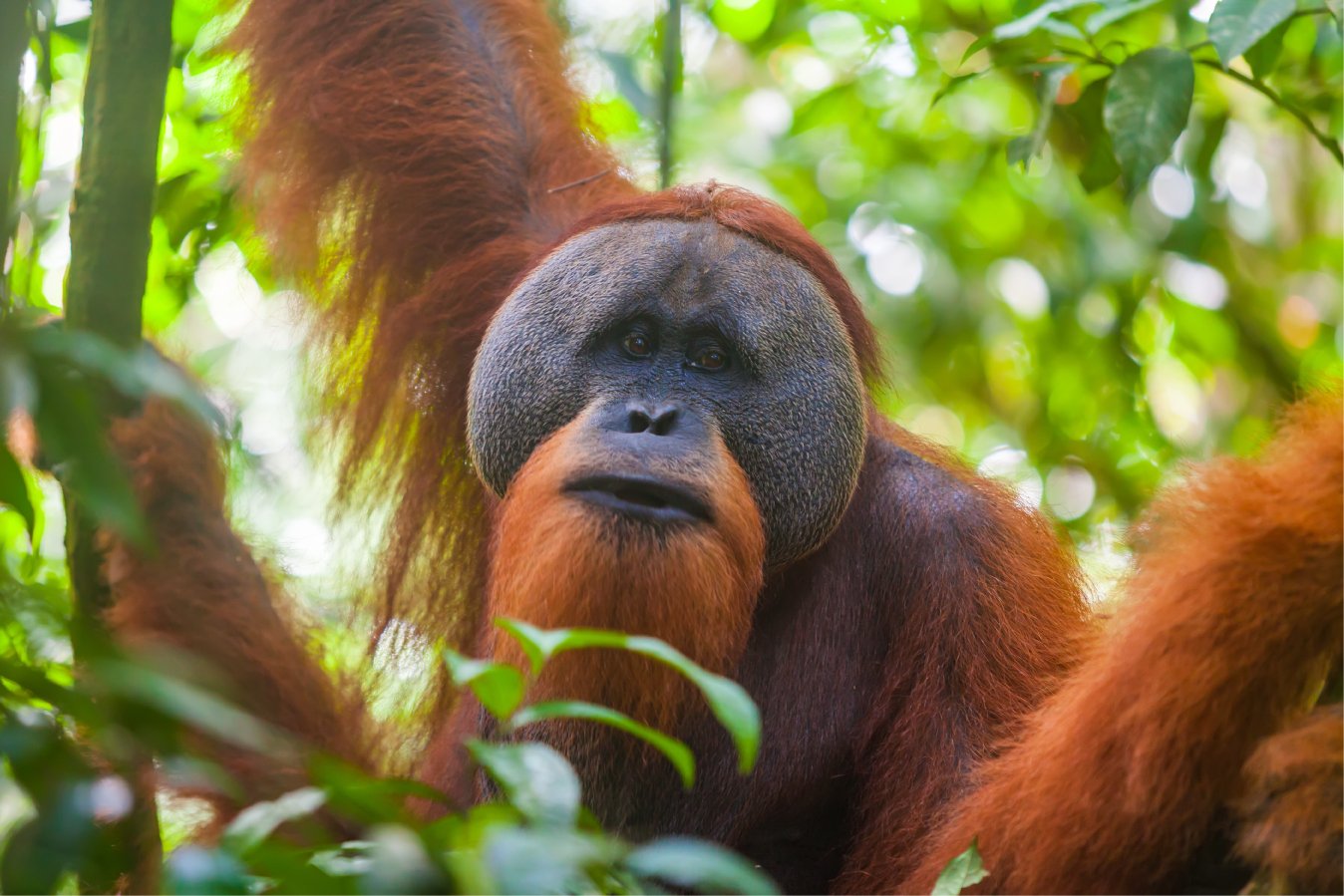
A flanged mail orangutan i in Gunung Leuser National Park, Sumatra, Indonesia. Photo by Anton Petrus/Adobe Stock.
Male orangutans exist in two fully mature forms: flanged and unflanged males. Flanged males are twice the size of unflanged males and females, and they have secondary sexual characteristics—large cheek pads and an enlarged throat pouch. Female orangutans prefer flanged males, and mate more proceptively with flanged males when the likelihood of conception is highest. However, there are no external signals of ovulation and females mate with multiple males, both flanged and unflanged. Male orangutans are also unusual among non-human primates in their use of forced copulations (a form of sexual coercion).
My dissertation research seeks to better understand how sexual conflict shapes orangutan reproductive strategies. How do male orangutans employ reproductive strategies to increase their likelihood of reproductive success in the face of multi-male mating by females? How do female orangutans employ reproductive strategies to enact female choice in the face of male-male competition and sexual coercion by males?
In order to investigate these questions, I am studying wild orangutans in Gunung Palung National Park, Borneo, Indonesia. I will analyze over 20 years of behavioral data, collect new behavioral measures on male and female orangutan interactions, and use genetic analysis to determine the paternity of orangutans. Behavioral data on encounters, feeding, and activity will show whether males or females are in control of encounters and will measure the costs associated with encounters. Paternity data will show which males have the highest reproductive success.
Measuring reproductive success will inform us about the relative importance of female choice and sexual coercion in a primate species where intense male-male competition and forced copulations seem to favor males ‘winning the evolutionary arm’s race,’ but the dispersed social system and concealed ovulation seem to favor females being able to manipulate paternity. Understanding the diversity and evolution of reproductive strategies across non-human primate species enables us to contextualize human evolution and behavior.
The role of sexual conflict is often overlooked in models of human evolution, but the centrality of sexual conflict in shaping the reproductive strategies of both male and female orangutans, one of our closest living relatives, emphasizes the importance of considering how sexual conflict has shaped human evolution.


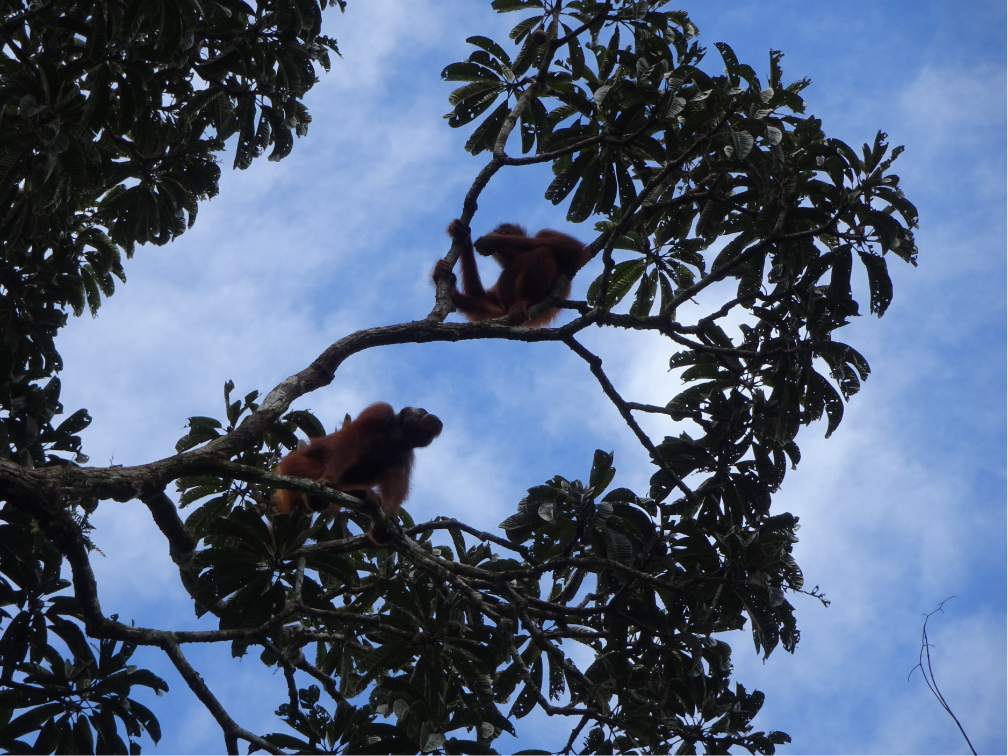
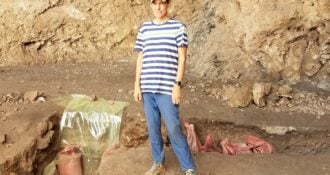
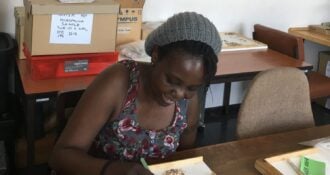
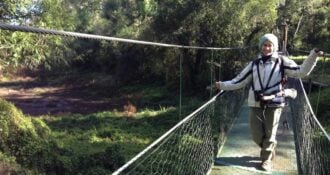
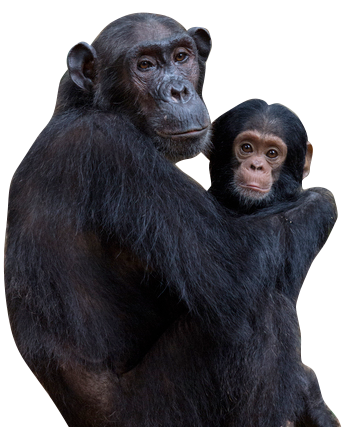
Comments 0